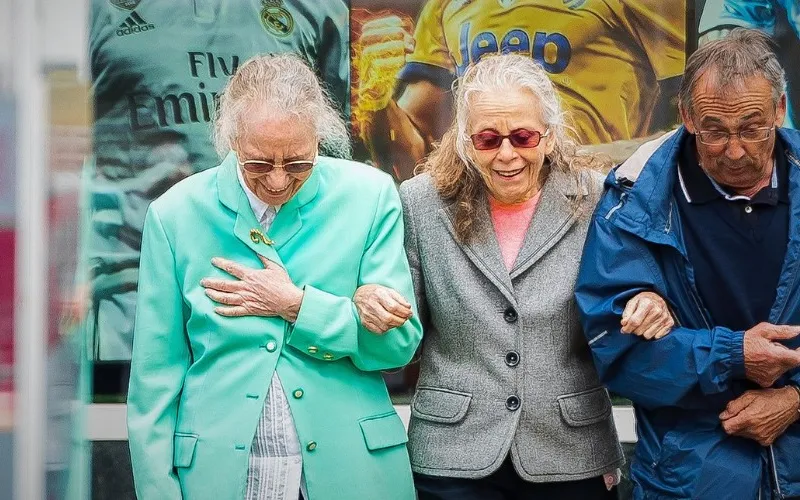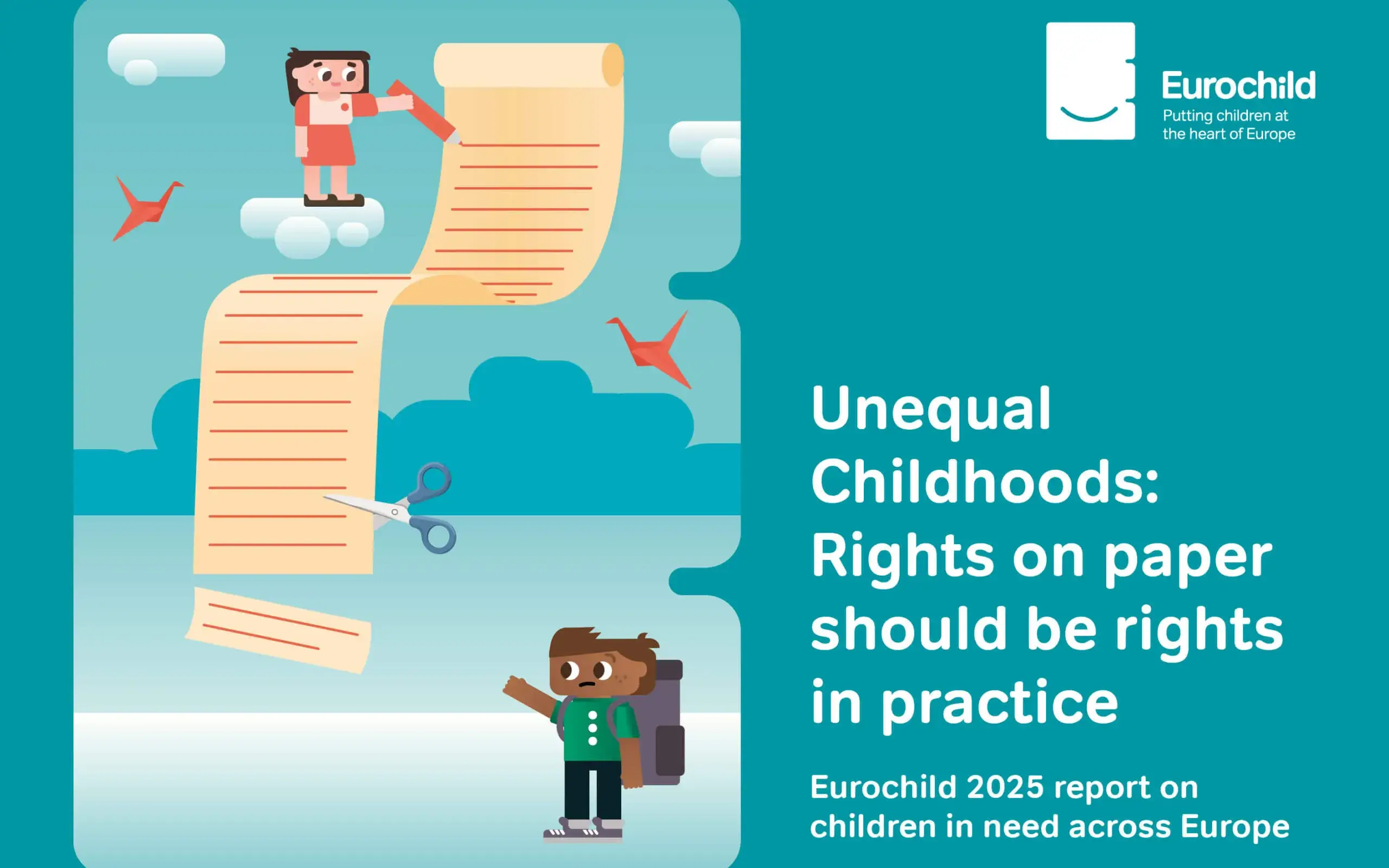Nena Georgantzi: “Older persons’ rights have largely been deprioritized during the pandemic”
The Policy Coordinator of Human Rights and Non-Discrimination at AGE Platform Europe talks about how older people have suffered the consequences of the pandemic and what measures are necessary to support them.
In your opinion, are older person’s rights being protected during the pandemic?
The situation evolves rapidly and responses in different countries and local contexts vary, but overall, as we highlighted in our recent paper, older persons’ rights have largely been deprioritized during the pandemic.
The WHO Director stressed that states have not always reacted as urgently because they felt that COVID-19, which is primarily affecting older populations, was less worthy of their best efforts. This is a characteristic example of institutionalised ageism and the way in which older people, especially those in the most vulnerable situations, such as those living alone and those in care settings have been left behind.
So, are older people suffering discrimination?
Older persons have faced both direct and indirect forms of discrimination during the pandemic. Especially in the beginning, older persons were pictured as the only group at serious risk.
Additionally, an unprecedented amount of ageist comments appeared in the media. Even though older persons are in a vulnerable situation during the pandemic, stigmatizing them as frail, passive or a burden is a form of discrimination and breaches their inherent dignity. Several countries have - at least initially - planned to extend confinement only for the older population.
How does this situation affect older people?
Using age as a criterion for extending lockdown is discriminatory and could have detrimental impact on older people’s mental and physical health.
Such measures could also reinforce stereotypical images of older persons and could later on create barriers for older workers seeking employment, because of employers’ concerns about protecting them. There is also some evidence that older persons living in residential care settings were denied testing and access to hospital care.
Are their essential services being guaranteed?
The answer to this question will depend on the country and the personal circumstances. Older persons living alone for instance are in a disadvantaged position when it comes to access to access essential goods (e.g. food), services (e.g. social or health care), and to maintain human interaction. For example, there is evidence from the UK that several older persons are at risk of malnutrition.
Additionally, older persons and other people in need of support may be left unattended due to measures of physical distancing, shortage of care workers and other extraordinary measures imposed by governments. Luckily, community-based initiatives have often been developed to cover these needs. However, there are still older people who struggle. More efforts are needed to identify and support older people who do not have a network to rely on.
In countries like Spain or Italy, most of the deaths are older people living in residential care facilities. Do they have enough access to medical, social and palliative care?
Now most countries and the World Health Organisation have developed guidelines for coping with COVID-19 in institutional settings, but unfortunately residential care facilities were deprioritised in terms of intervention in the beginning of the crisis, which has left residents and staff unprotected. There are several human rights breaches that have been documented in care institutions.
Why is it happening?
First, older persons in these facilities are at a higher risk for adverse outcome and for infection due to living in close proximity to others and underlying comorbidities.
Second, care homes are not always able to apply appropriate physical distancing in case of infection.
Third, both residents and staff lack to a large extent protective equipment and testing.
Fourth, care facilities are largely understaffed, as some staff become ill, self-isolate for preventive reasons or cannot work due to family duties. The remaining caregivers therefore can offer only the most rudimentary care to residents.
Fifth, there have been recorded cases where people living in these facilities were denied transfer to hospitals when their medical needs became severe.
And finally, in many countries, residential care institutions have applied strictly ‘no visitors’ policies, which in some cases has contributed to the deterioration of mental and physical health of residents (ex. refusal to eat) or has denied older persons who are terminally ill to be accompanied by their loved ones at the end of their lives.
What is your opinion about medical triage used in some hospitals all over Europe?
Everyone, without exception, has the right to life-saving interventions. Medical guidelines/triage protocols are necessary in countries where healthcare professionals will not be able to provide the same level of care to everyone due to lack of life-saving equipment. Triage protocols must be developed to support decision-making of healthcare professionals on the basis of medical needs, scientific evidence and ethical principles.
Do you think that age alone should be a criterion for medical triage?
Whereas some older persons will have comorbidities that impact their chance of surviving intensive medical intervention, age should never be a criterion for medical triage. Protocols based on non-medical criteria such as age or disability, deny persons their right to health and life on an equal basis with others.
The growth of social isolation because of social distancing is another trouble that older people must face during these hard times. What measures are necessary to tackle this problem?
Not all older people are facing isolation, and not only older people are isolated due to physical distancing. In all cases, we should do our utmost to ensure that physical distancing do not lead to social isolation.
What role are online resources playing to relieve this suffering?
NGOs and community groups have been organizing several online activities and helplines to facilitate interaction and engagement during the pandemic. Such initiatives using digital technologies have also been introduced in some residential care settings but many of them did not have the equipment or the staff available to implement this good practice.
Whilst digital means are now being widely used to communicate and to access services during the current lockdown, many older people do not have access to a PC, tablet or smartphone, an Internet connection or the necessary digital skills to maintain remote contacts with family and friends during the current crisis. For people with cognitive decline, such as dementia, maintaining contact through online means may be complicated or even stressful. These groups are likely to be more affected than others from physical isolation.
Measures of physical distancing need to be accompanied by social support measures for isolated people and marginalised groups, including by increasing their access to digital technologies. Partnerships with the private sector are crucial to ensure that digitally excluded groups can have equal access to phone, internet and other media. In parallel, radio and TV broadcasts, text messages, print material and other alternatives must be used to provide information and support during the lockdown.
From your point of view, what measures do you propose European Union must take in the immediate future to protect older people?
In our recent paper, we call for:
- Respect for human rights based on international standards
- European solidarity to raise the funds necessary to overcome the crisis
- A renewed social, environmental and economic strategy for the EU
- Putting into action the promises of the European Pillar of Social Rights and the Sustainable Development Goals
- Investment into quality, patient-centred long-term care systems
- Support for informal carers
- Strengthening of preventive and public health on EU level and adopting a Health in All Policies approach
- Ensuring social protection for all during and after the crisis
- Employment policies that foster recruitment of older persons
- Promotion of digital and green skills for all age groups
- Adequate income security, including for statutory pensions and beneficiaries of occupational and personal pensions







Add new comment